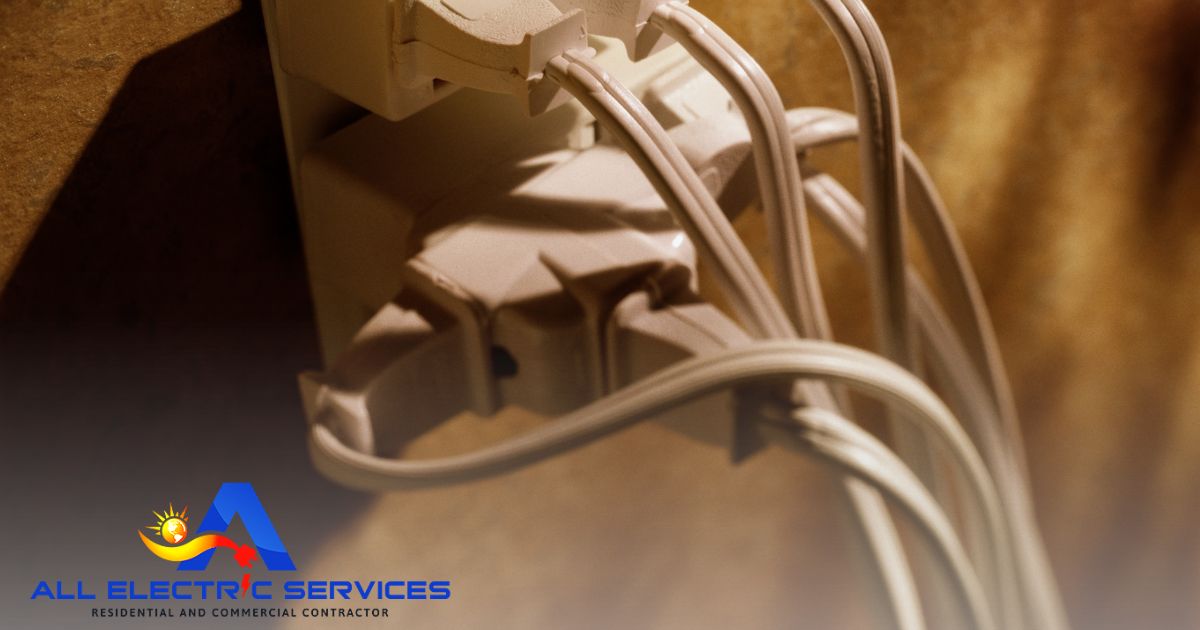
So you're sitting at home, watching a movie, and suddenly you hear a loud noise. You look over to your outlet, and there's a spark. Or maybe the lights flicker on and off for no reason. If this has happened to you, don't panic! In fact, there are several things that could be causing these noises and fluctuations in power—nothing to worry about as long as they don't happen too often or get worse over time.
Why Do Outlets Spark?
So, is it normal for outlets to spark? The answer is yes and no. Sparks from an electrical outlet can happen on occasion when plugging in an outlet, but this should be a rather rare occurrence. If you have sparks flying every single time you plug in an appliance into your outlet, that is not normal. A good rule of thumb, if you’re afraid to use one outlet you need repairs.
Outlets can spark for a number of reasons, including:
- Problems with the appliance or device you're plugging in
- Loose or damaged wiring inside the outlet
- The outlet is overloaded
- Short circuiting
- A defective socket
Outlet or Appliance/Device Damage
The first thing to consider when your outlet spark is whether the problem is with the outlet itself or something that's plugged into it. If you've checked the outlet and find no damage, but your appliances still spark when plugged in, then there may be something wrong with the appliance itself (or another device).
If you do find damage on an outlet, call an electrician. The fix will depend on what's wrong: if there are loose wires or other problems inside of it, then they'll need to replace it altogether; if there are only some burnt spots where sparks happened before (and haven't since), then they'll likely just need to replace that portion of cable inside as well as any damaged parts like screws and brackets holding everything together.
Once again, though—it's best not to try any repairs yourself! Electrical systems can be fickle and unforgiving if you’re not prepared. Electrical work can be dangerous in experienced hands, and the risk of damaging appliances in your house can be high.
Outlet Overload
The first thing you should do is make sure the outlet isn't overloaded. If an outlet is already in use, don't plug in anything else until you've removed something from the outlet (or at least unplugged it). An overloaded outlet can cause sparks.
Be careful when using extension cords. Don't overload them either—if you put too much load on one side of an extension cord, it can start sagging and get hot enough to create a spark between its wires and those of whatever device is plugged into that end of the extension cord. And don't ever plug multiple devices into one extension cord—that's just asking for trouble!
Bad Wiring
It's possible that your wiring is to blame for the sparks. It may be loose, frayed, corroded, or faulty.
Wiring can deteriorate over time due to age and wear and tear if you have an older home. That's why it's essential to routinely inspect your electrical outlets and switches to make sure they're in good working order.
Short Circuits & Sparks
Short circuits are a common cause of sparking. A short circuit occurs when the electrical current isn't flowing through the outlet but instead across it, causing a high-amp spike of voltage that can damage the outlet and wiring.
Short circuits are often caused by improperly installed or damaged extension cords, as well as frayed or cracked wires in your home's wiring system. Short circuits can also be caused by loose connections within your appliances—for example, if two prongs on your plug aren't making proper contact with their respective slots in an outlet socket (or if there's some other defect with that socket).
Looking for help? Contact All Electric Services at (407) 890-7782 today!
